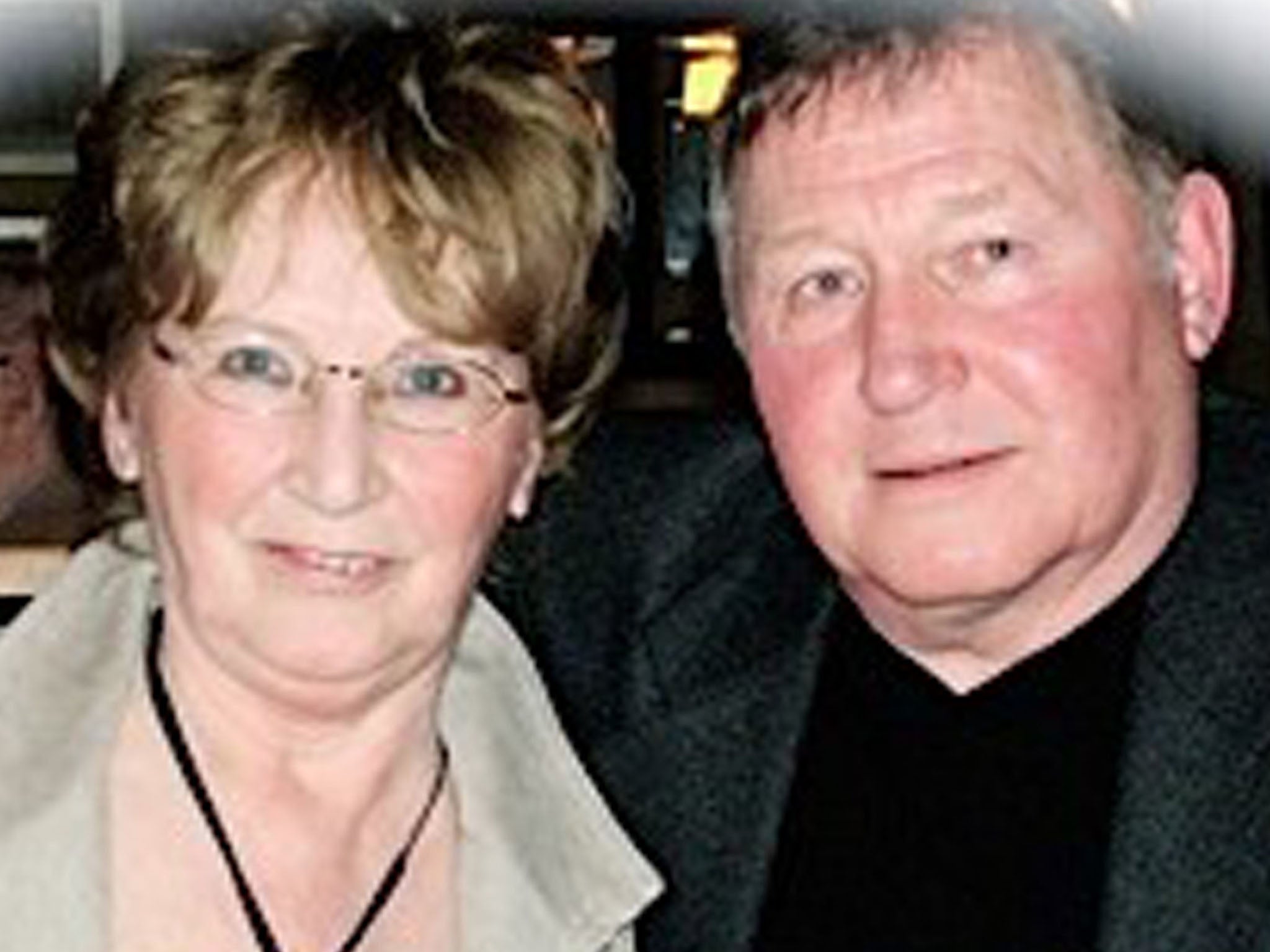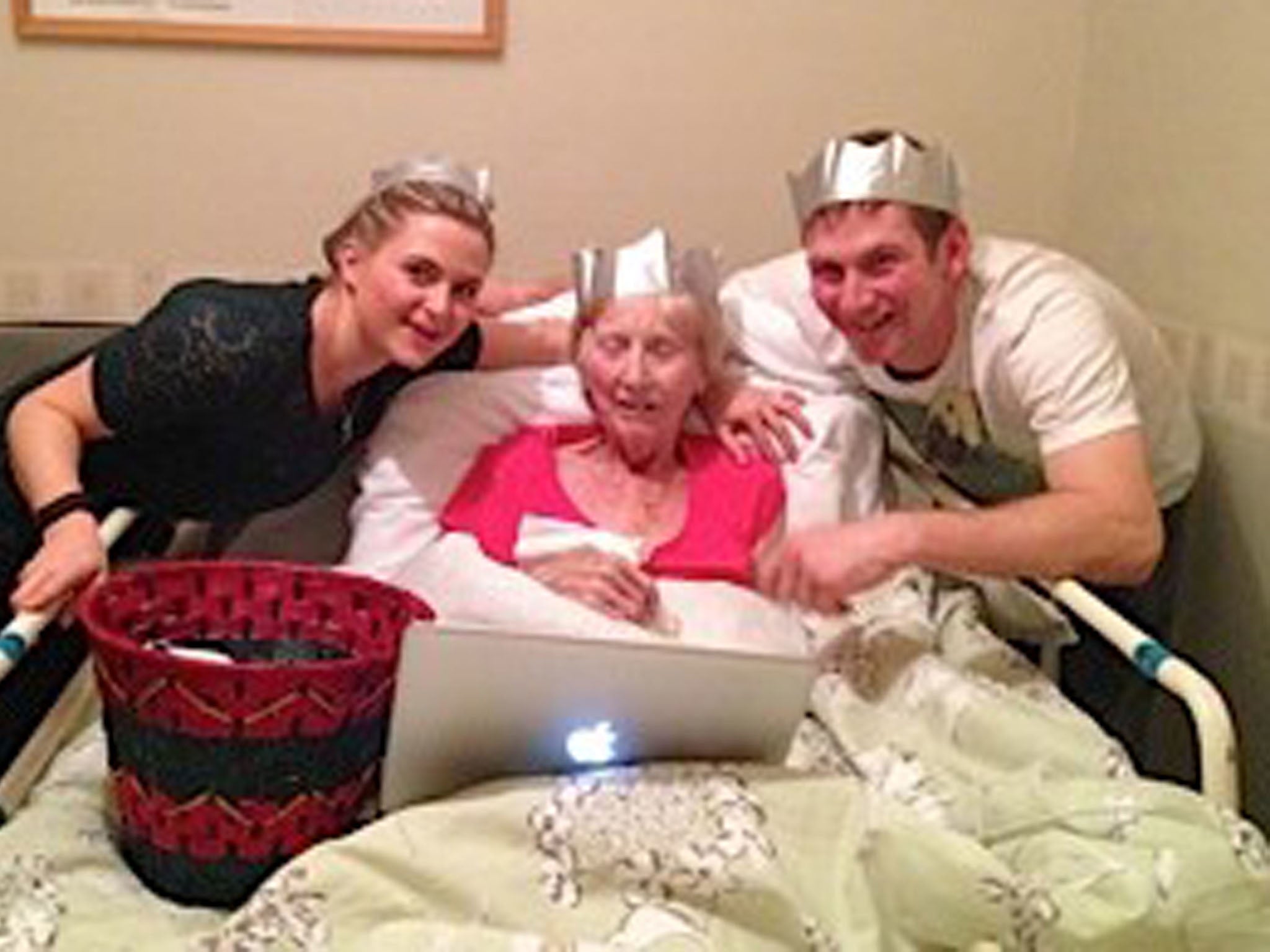Breast cancer screening: Grieving husband describes 'shell shock' after realising late wife may have not have been invited for tests
Hundreds of women may have died because a computer algorithm failed to invite them to screenings, Jeremy Hunt admits

Your support helps us to tell the story
From reproductive rights to climate change to Big Tech, The Independent is on the ground when the story is developing. Whether it's investigating the financials of Elon Musk's pro-Trump PAC or producing our latest documentary, 'The A Word', which shines a light on the American women fighting for reproductive rights, we know how important it is to parse out the facts from the messaging.
At such a critical moment in US history, we need reporters on the ground. Your donation allows us to keep sending journalists to speak to both sides of the story.
The Independent is trusted by Americans across the entire political spectrum. And unlike many other quality news outlets, we choose not to lock Americans out of our reporting and analysis with paywalls. We believe quality journalism should be available to everyone, paid for by those who can afford it.
Your support makes all the difference.A grieving husband has described his shock at realising his wife may have been among those whose lives were cut short due to a breast cancer screening error.
Health secretary Jeremy Hunt said a “computer algorithm failure” dating back to 2009 had meant many women aged between 68 and 71 in England were not invited to their final routine screening.
He said it was not currently known whether any delay in diagnosis resulted in avoidable death, but that it is estimated between 135 and 270 women had their lives shortened as a result.
Brian Gough said his wife never received a letter inviting her to go for routine screening in 2009 – and that after she later found a lump, a scan in October 2010 revealed she had stage three breast cancer.
He said he was watching the television on Wednesday when the news of the screening error broke, leaving him “shell shocked”.
“It just hit me and I thought, ‘Good God,’” the 77-year-old from Norfolk said.
He said he was convinced his wife was a victim of the “massive error” because her illness struck “right absolutely plum in the centre of when this happened”.
Despite his shock, Mr Gough said he admired the health secretary for “getting up and not trying to hide the truth”.
“I am glad the truth has come out, and I just hope that people take more notice of these glitches,” he said.
“It really does affect people’s real lives, devastatingly, it really devastates.
“Potentially we are talking about 450,000 women who could have died, it is all very well saying only a percentage but we are not born as a percentage of anything, we are a person.
“And those people have got families, friends and lives to lead, and they have been cut short.”
Mr Hunt faced questions about the speed with which women who have been affected by the mistake will be contacted, and was asked by Labour’s Liz McInnes whether the alarm had been raised by GPs wondering why their patients had not been invited to a screening.

Mr Hunt said: “I’m not aware of any such instances but that’s exactly what we want to look at in this review.
“It does seem strange that people didn’t come forward who were expecting to be invited and didn’t get an invitation and that didn’t set hares running, so that’s one of the things we need to look at.”
The health secretary apologised “wholeheartedly and unreservedly for the suffering caused” on behalf of the government, Public Health England and the NHS.
He told MPs that all those living in the UK who are registered with a GP would be contacted before the end of May, with the first 65,000 letters going out this week.
The letters will tell women under 72 they will automatically be sent an invitation to a catch-up screening, and those aged 72 and over will be given access to a helpline to decide whether a screening is appropriate for them.
Mr Gough said that following her diagnosis, his wife Trixie underwent an operation, chemotherapy, radiotherapy and then scans every three months during which her cancer was under control.
But he said it returned again, prompting another two years of chemotherapy and treatment during what he described as an “horrendous situation”.
He said his wife of 56 years died three days after Christmas in 2015, and that the 76-year-old never once complained during her cancer ordeal.
Mr Gough said she missed the wedding of her grandson as she was too ill to attend, and died just before her granddaughter’s nuptials.
“All of that she missed because she didn’t get diagnosed and she didn’t know anything about it until a year too late,” he said.
Mr Gough believes that ”maybe, just maybe” his wife might have come through the first lot of cancer treatment and survived if it had been diagnosed earlier.
“It has happened, we can’t reverse it,” he added.
“I can’t express how sad it is, I know we can’t be certain it would have picked up her cancer as it may not have developed, or that she would have survived.
“But it is possible.”
Press Association
Join our commenting forum
Join thought-provoking conversations, follow other Independent readers and see their replies
Comments